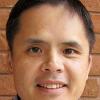“Which of you, if your son asks for bread, will give him a stone? Or if he asks for a fish, will give him a snake?” (Matthew 7:9-10).
I have never eaten a stone, but if given a choice between the offerings of a fish or snake, I think half the members of my church would answer, “Yes, I’ll have both please.” In addition to fish, Chinese people enjoy seafood of every shape, size and shade. Snakes, on the other hand, are land reptiles, but they are quite a delicacy in our culture.
Jesus’ illustration of God’s goodness can sound quite puzzling to a new Chinese believer. Words can have very different meanings and interpretations in different cultures. The full meaning of one’s words cannot be fully transmitted between cultures because of differences in context, time and space. This can be quite a conundrum for us teachers and preachers, whose trade is in words. This is especially challenging in my church context of three distinct cultural groups that speak English, Cantonese and Mandarin. Each of these groups will come with a unique set of eyes on the biblical witness.
In the larger context of serving fish and snakes, Jesus is teaching about prayer (Matthew 7:7-11). He instructs his disciples to do three things: ask, seek and knock. I notice instinctively how this passage naturally lends itself to a perfectly structured sermon. It offers three precise points and it closes with an illustration. I also notice that the three verbs are in the active voice. I sense the Spirit leading me to exhort the church to pray courageously, assertively and persistently.
This is my default mode of reading and approaching the biblical text. While I may believe that I am being logical, practical and exegetically faithful, I also recognize this is a North American way of thinking. This approach is probably best suited to listeners who are native to Canada and whose mother tongue is English. So I need to be mindful that those who come from countries outside of Canada will experience and interpret Scripture quite differently.
Jesus instructs us to ask God our Father to grant us our requests. The ability to bring our petitions before God is an expression of our desire to be in relationship with him. This is also an expression of trust and dependence on a loving and caring God.
In the Chinese culture the act of asking is a complex one. The one who asks must weigh many relational parameters before making the request. There is a proverb ascribed to a Chinese author that says, “He who asks a question remains a fool for five minutes. He who does not ask remains a fool forever.” In this proverb, the word “fool” probably doesn’t quite capture the full extent of the injury. The injury is not merely the feeling of embarrassment, shame or being inadequate.
Being a fool means losing face. This unique phenomenon of losing face is a grave contravention of social etiquette in Chinese culture. It basically means the loss of honour, respect or communal prestige. Losing face is to be avoided at all costs because it disrupts harmony in our relationships.
There is also a complex system of rules that govern how face is lost or given. One could lose face if a request is made at an inopportune time, if one is overly assertive with the request or if one approaches the wrong individual with the request. On the flipside, face is saved or given when a request is prefaced with a compliment or accompanied with a personal gift. Face can also be saved when you avoid a conflict or if you suppress a sensitive issue. This all-important face-management is captured in this proverb: “Men can’t live without face, trees can’t live without bark.” So in this high-context culture the simple act of asking isn’t as simple as one would imagine.
Let us consider Jesus’ promise of petitions and prayer: “Ask and it will be given to you . . . everyone who asks receives.” When this promise is accepted, one would still need to consider the negative outcome. What happens when genuine and selfless prayers go unanswered? How would this affect the petitioner, especially if the prayer was presented in public? This could result in a socially awkward situation. Someone may end up feeling like a fool and lose face. The immediate response may not necessarily be one that attempts a theological answer. The response may very well be one that attempts to save face. One of finest ways to save face is to avoid all future mention of the issue.
Another complexity in the act of asking is to understand the relational dynamics of power and authority. Relationships in Chinese culture tend to be structured from a hierarchical family structure. In a traditional family the patriarch would make all the decisions on behalf of the family and his word would be the final word. Typically he would rule the clan without any challenge to his authority. Invariably children growing up at home would remember hearing phrases like, “Children have ears, not mouths.”
In Chinese culture positional authority is unearned; it is simply recognized. Deference is therefore given to the elderly and to those of a higher standing. “High-power distance” is the terminology I have come across to describe this dynamic, so in our high-power distant culture the authority structure is simply accepted as a part of life. In such a system authority is rarely questioned, decisions are accepted, and personal opinions are internalized and left unexpressed. These insights may offer some explanation to the commonly held perception that Chinese people are quiet, reticent and passive.
Given these unique cultural factors, how would a newer Christian understand Jesus’ instruction to ask? When one weighs the power distance, the chasm between the petitioner and God seems impossibly far. How could one’s request be even considered by an all-knowing and all-powerful God? I imagine one can feel quite inadequate, undeserving or unworthy before a transcendent God. When prayers are offered, they may at first sound timid, guarded and unassertive.
Is unassertive prayer not the malady that Jesus is asking us to remedy? In our western context we admire people who are bold, courageous and assertive. These are qualities that we look for in our church leaders and pastors. So if I were to exhort the church to pray courageously, assertively and persistently, would everyone resonate with me? I hazard to guess that I could be perceived by some as being immodest, insensitive or even arrogant. Why? Because a true follower of the king is never outspoken or forthright; he cannot assert his own view or opinion. Instead, he is obedient and submissive, and he always defers to the benevolent king.
“Seek and you will find . . . the one who seeks finds.” This seeking and searching theme, especially for peace and harmony, resonates deep within Chinese culture. Both the idea of searching and the beauty of harmony have been at the core of Chinese philosophy since ancient times. To seek for something requires effort, persistence and perseverance. From this perspective, seeking God in prayer is hard work.
The stereotype of the Chinese being hard workers has been noted in the West. Arthur Smith, the American missionary who had spent 54 years in China, wrote books introducing the hard-working Chinese people to American readers back home. He wrote about their industriousness, diligence and their love for work.
Carl Crow, an American newspaper businessman, was the first westerner to open an advertising agency in Shanghai, in the 1940s. In his book The Chinese are Like That he wrote: “If it is true that the devil can only find work for idle hands, then China must be a place of very limited satanic activities.”
This is humorous and perhaps overstated, but I would agree with him. Industriousness, diligence and a belief in the virtue of hard work are parts of Chinese thought and practice. So if prayer means seeking the heart of God and pursuing him with great effort, then this resonates powerfully in the heart of the believer.
If seeking God in prayer means to persist and to go beyond the minimum because of a future promise, then prayer must be pursued. If seeking means it will bring benefit to oneself, family and community, then how can one not help but pray? From this perspective, prayer is a necessity. Prayer then cannot be avoided; it is to be embraced naturally, willingly and openly.
Brian Quan is the English ministries pastor at Toronto Chinese Mennonite Church. He earned a master’s degree in pastoral studies from Tyndale Seminary, Toronto.
This article was commissioned by Canadian Mennonite in preparation for the July 21-26, 2015, Mennonite World Conference Assembly. See others in the series:
Part 1- “Mennonite Christians are unique”
Part 2- “Journeying toward reconciliation”
Part 4- “The Sermon on the Mount: living it out in mind and heart”
Part 5- “It takes a (global) village”
For discussion
1. What examples of cross-cultural misunderstanding or mix-ups have you experienced? Have you ever had to interpret one culture to another? What makes it so challenging? In what ways are cross-cultural experiences inspiring or energizing?
2. Brian Quan explains what it means to lose face in Chinese culture. Is there anything equivalent in North American culture or in Mennonite culture? Are there other cultural influences that can make it difficult to ask assertively? How does Quan’s explanation of Chinese culture help us to better understand Jesus’ words?
3. When Mennonites from around the world get together this summer in Harrisburg, what role will worship play in bringing cultures together? How can music help to bring unity and when does it act as a barrier between cultures? Will the dominance of North American culture be a hindrance to good worship and fellowship?
4. What are the challenges facing a multi-cultural church? What happens when there is more than one culture within a congregation? If everyone is persistently seeking for God, do cultural differences matter?
—By Barb Draper




Add new comment
Canadian Mennonite invites comments and encourages constructive discussion about our content. Actual full names (first and last) are required. Comments are moderated and may be edited. They will not appear online until approved and will be posted during business hours. Some comments may be reproduced in print.